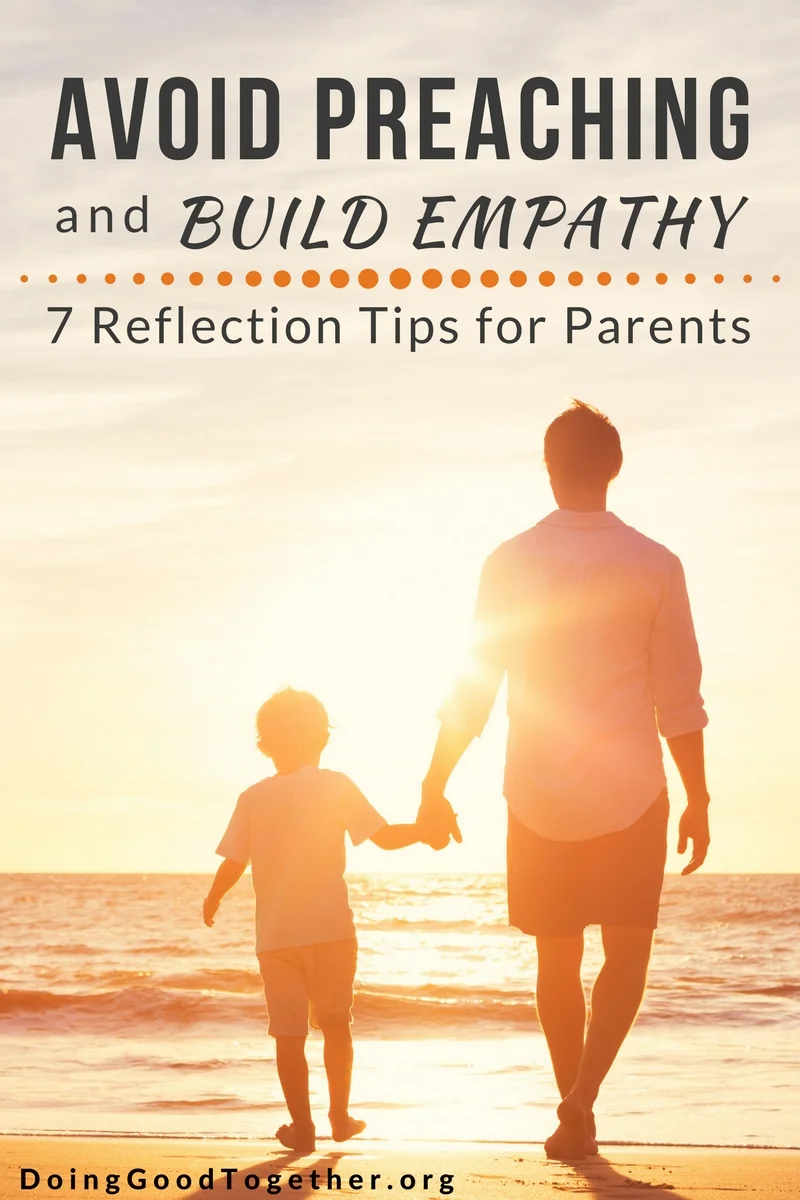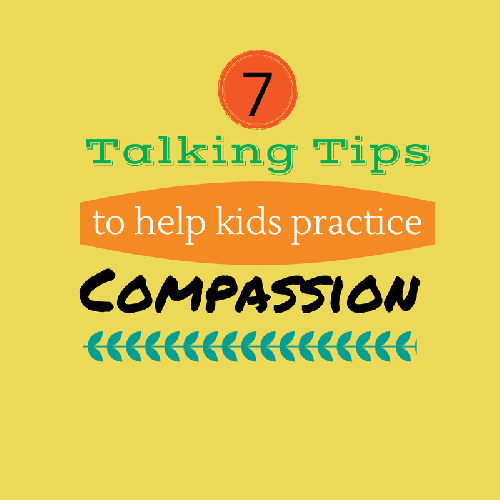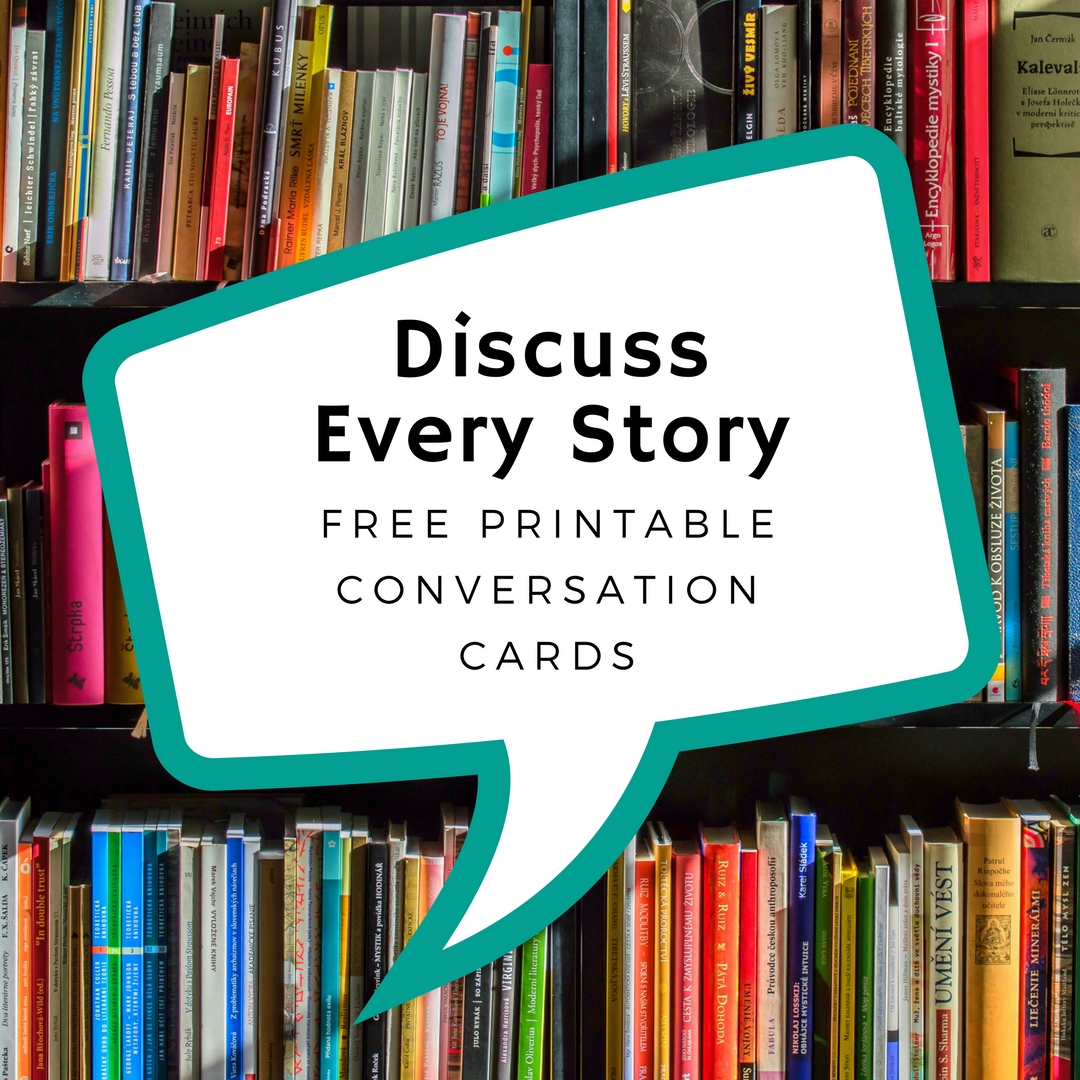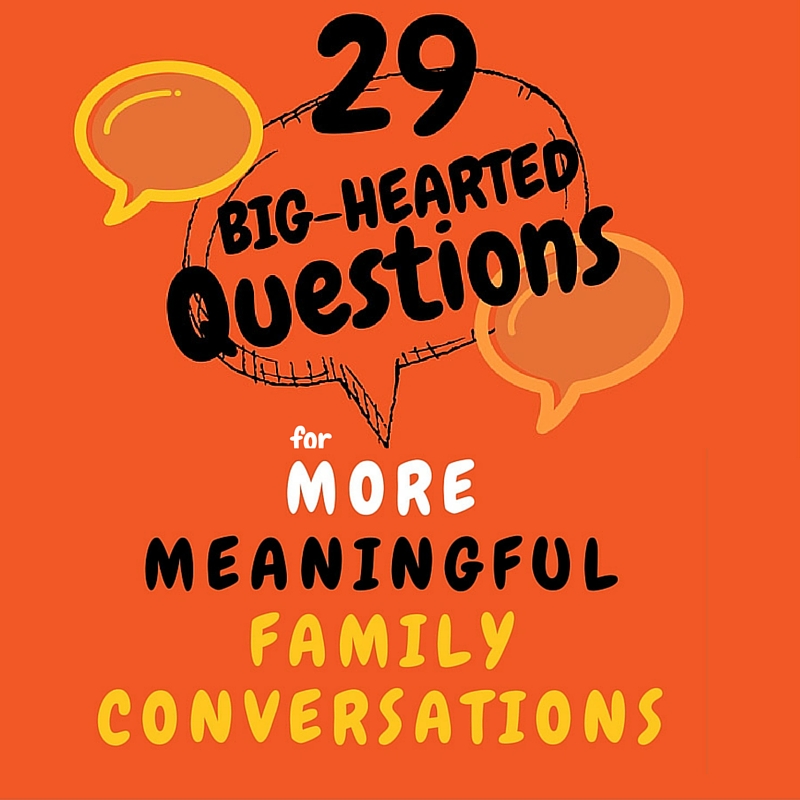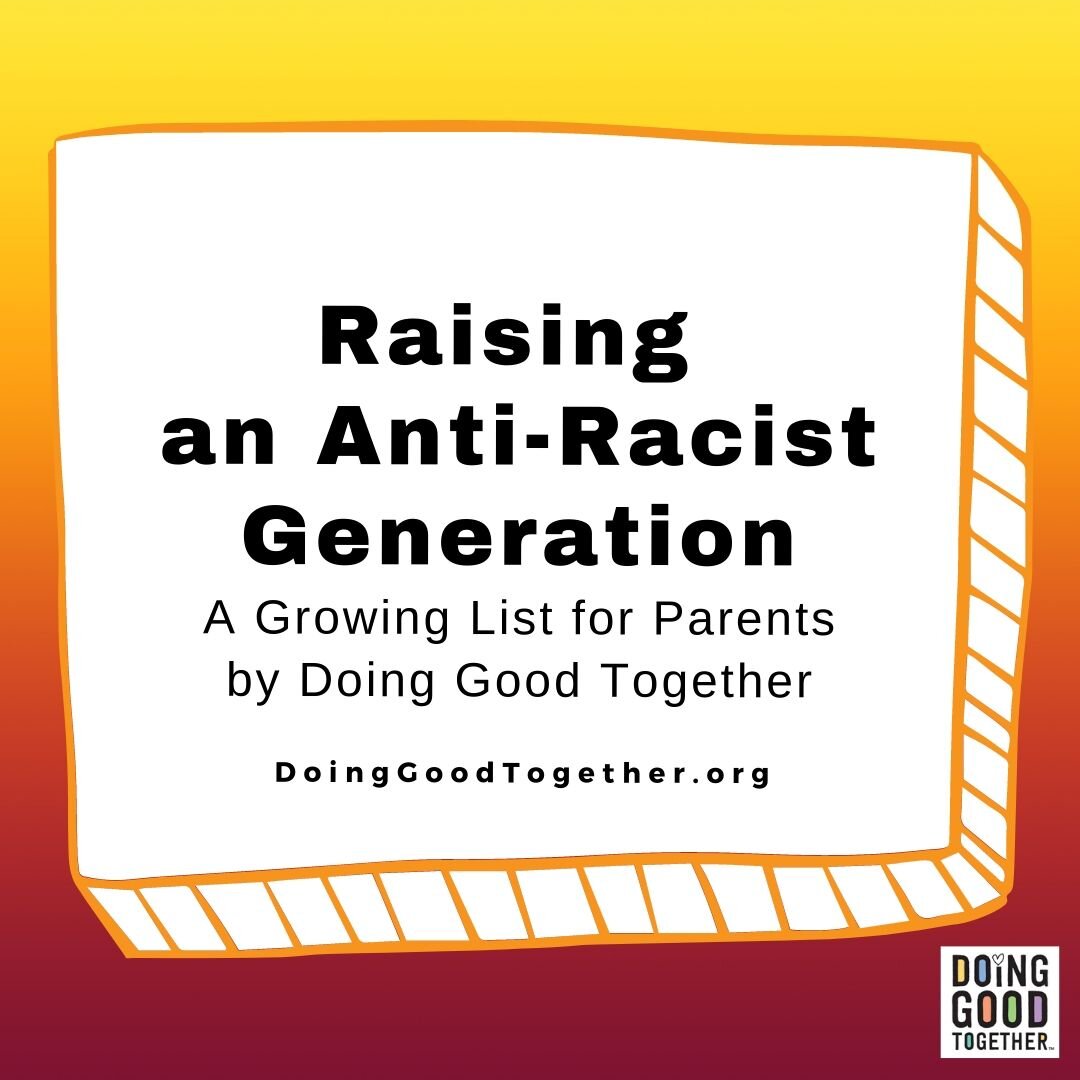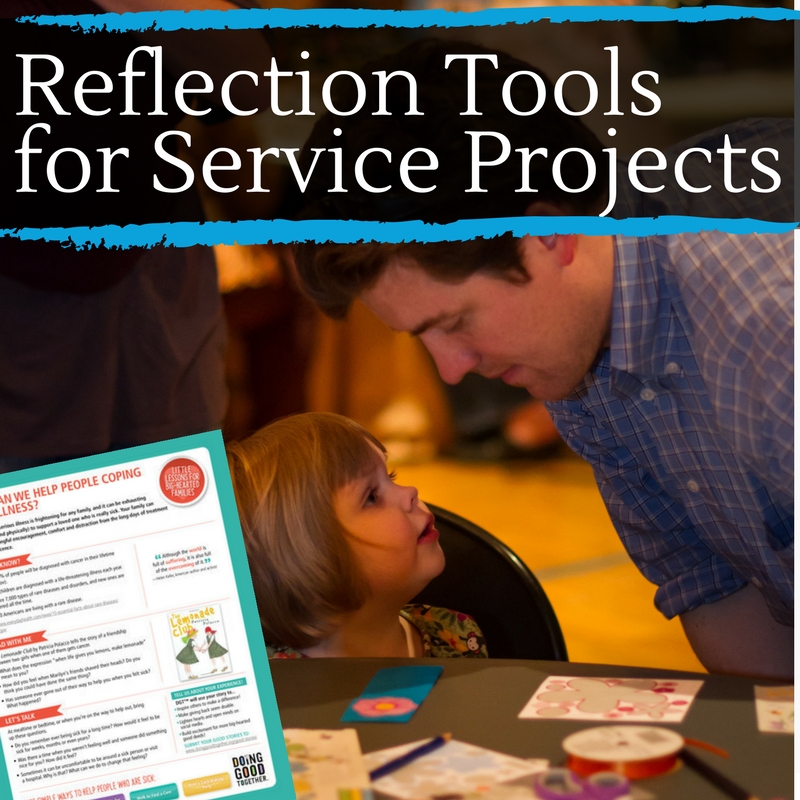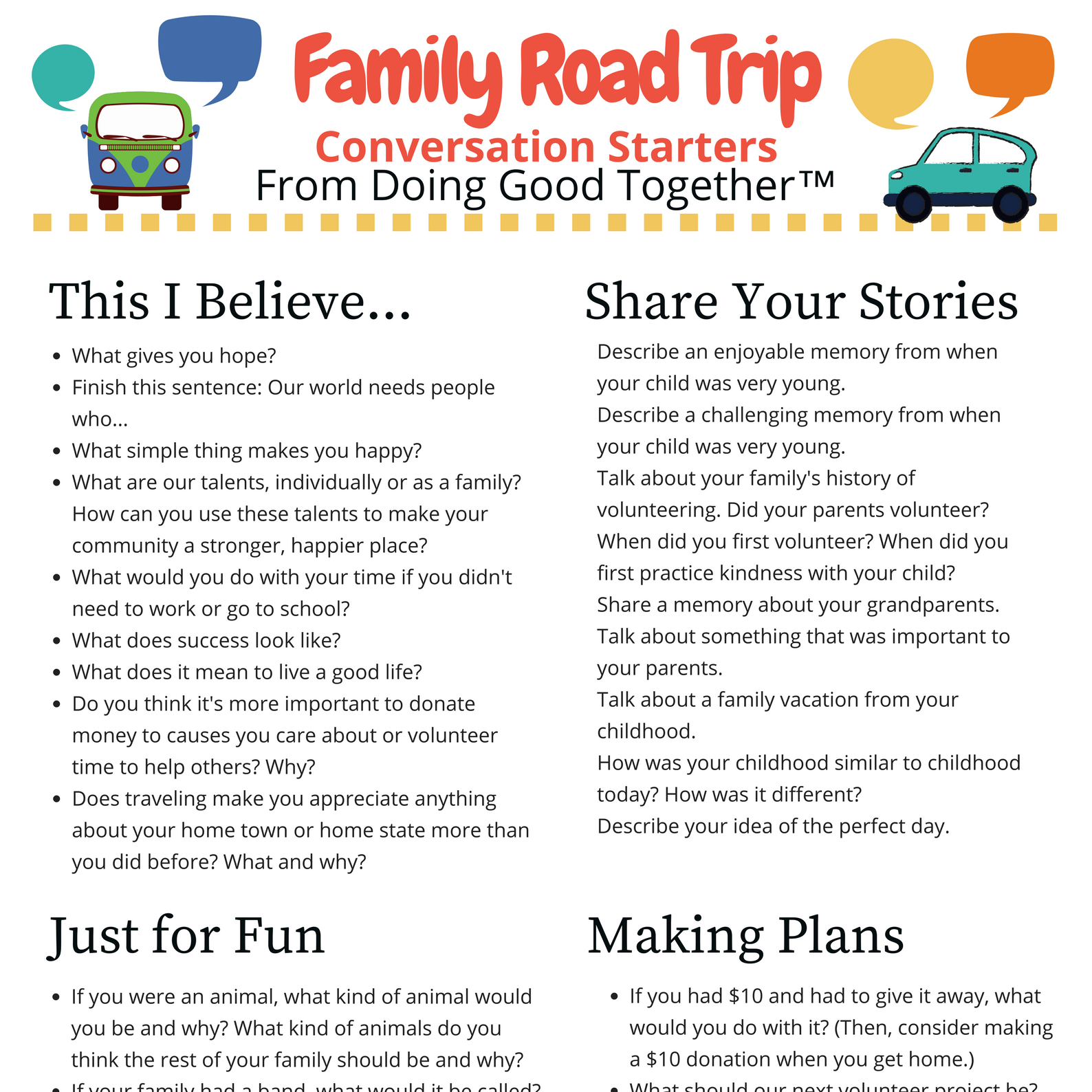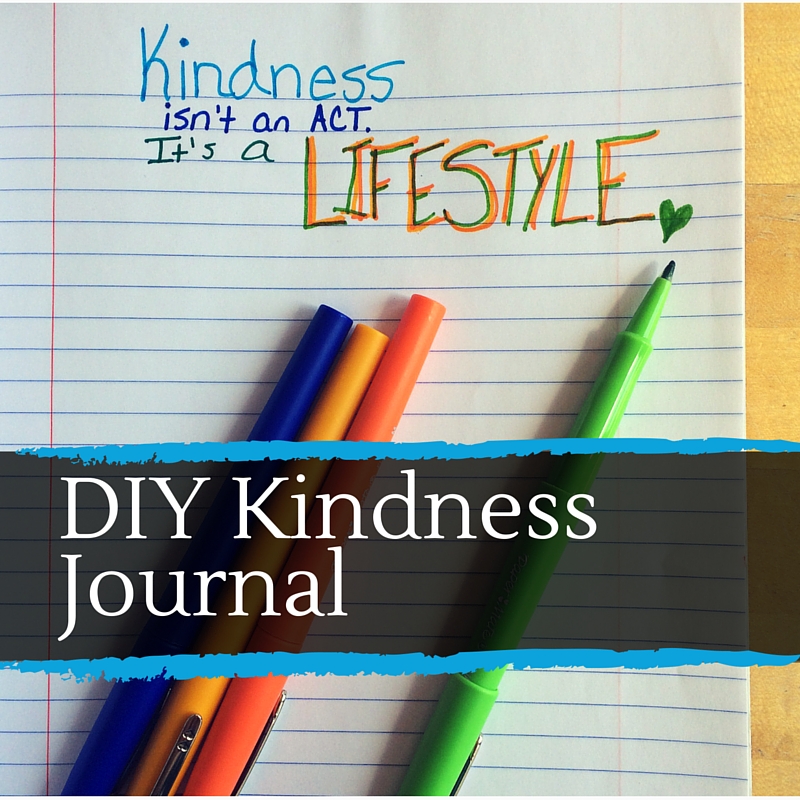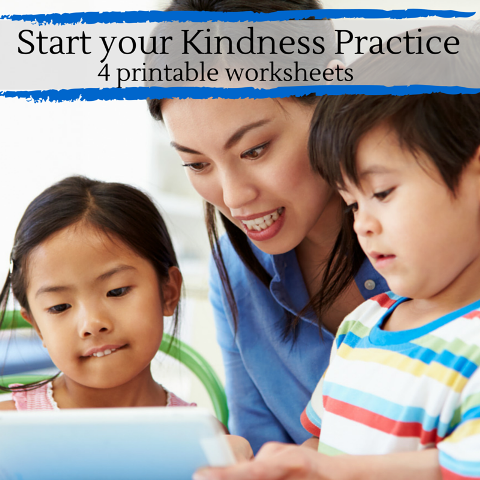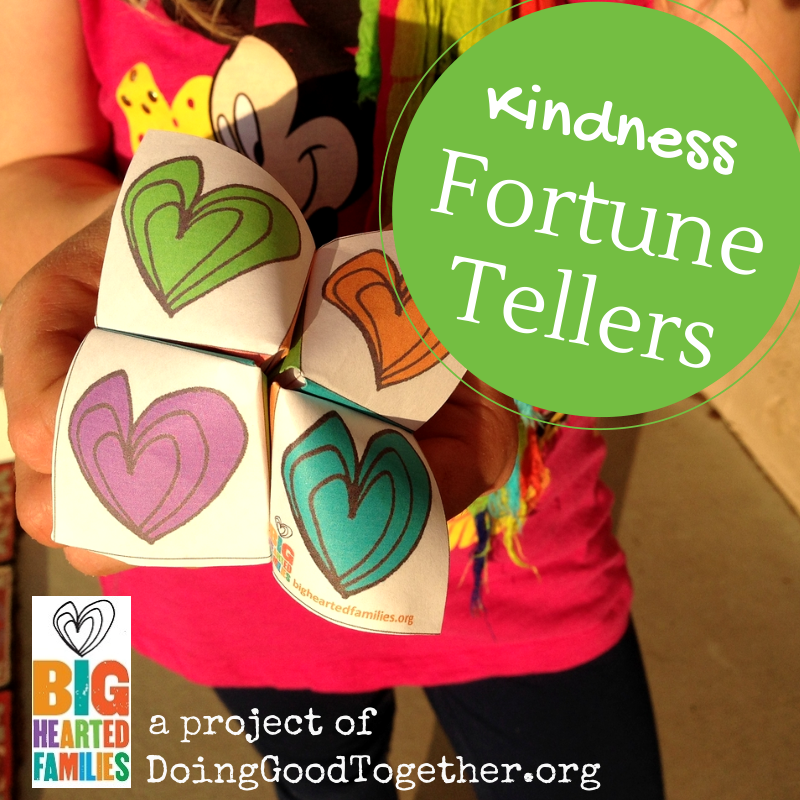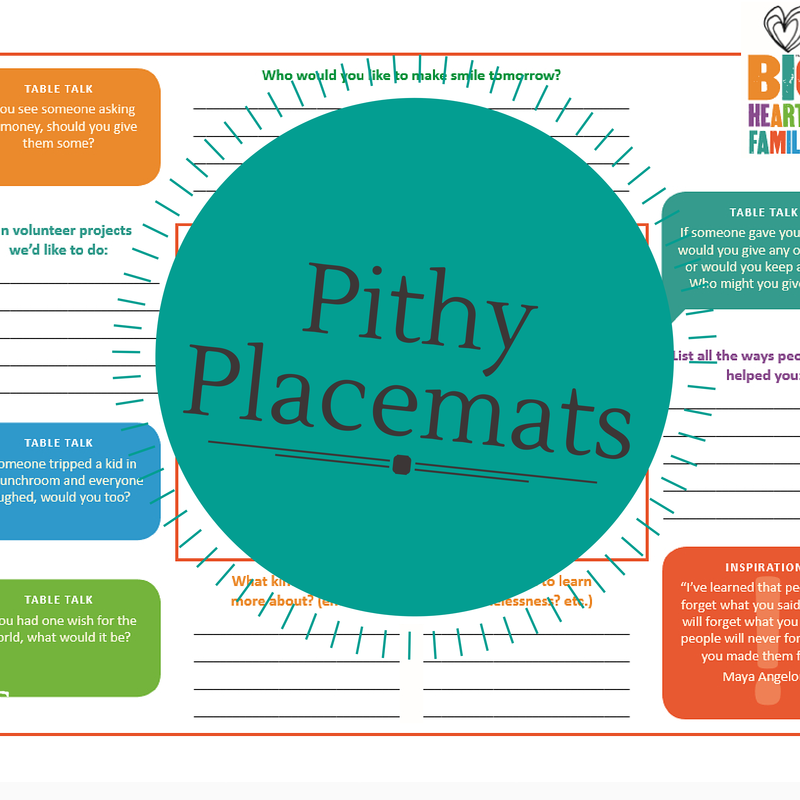While Talking about Big Ideas
Volunteering regularly with kids has an enormous impact on their generosity. Talking about the experiences you have while volunteering can be a great way to build empathy before and after service projects.
Unfortunately, preaching - or lecturing your child to be generous - can unravel your good example.
Adam Grant, author of Give and Take: Why Helping Others Drives Our Success, compiled current research and came to two notable conclusions:
Role modeling selflessness teaches children to be selfless.
But preaching generosity to your kids after your great role-modeling behavior, actually makes them less generous.
Ouch.
One of my favorite things about living the Doing Good Together mission is the opportunity to have meaningful conversations with my kids.
For seven years now, I've been intentionally making space on the calendar for my family’s kindness practice, including kindness conversations, and I can tell you, the effort has made a huge difference in the way we communicate. These empathy-driven conversations have improved our whole family's critical thinking skills, challenged stereotypes, and strengthened our empathy muscles.
And according to Grant's article in the New York Times, Raising a Moral Child, only 25 percent to around half of a child's inclination to be kind is genetic.
This means half to 75 percent of our tendency for compassion is taught. Modeled. Practiced.
As parents, we can successfully raise kids who care and contribute. Doing Good Together created the Big-Hearted Families™ Program, a tool-box of projects, conversation starters, and printables, to help families make kindness lessons part of their regular routine.
Grant's warning about preaching – that telling your kids they should be generous detracts from the impact of role modeling generosity – might cause some parents to shut kindness conversations down altogether.
Don’t abandon big conversations about compassion with your little people.
Done well, reflection will build empathy muscles, as well as family bonds. Kids love feeling heard and knowing their ideas are being taken seriously. Who doesn’t? Your family volunteer experience can lead to some pretty profound discussions.
Today we'll share tips to help you avoid preaching even as you strike up a big-hearted conversation with your kids.
Avoid preaching and build empathy: seven reflection tips for parents.
1. Ask questions.
The purpose of reflecting on the service projects and kind acts you've done is not to preach their value. The purpose is to understand the impact (or lack of impact) that you've made - on others as well as on yourselves. It’s also important to take a moment after each volunteer experience to ask everyone how you might change your project next time. Check out this list of basic questions to get you started.
2. Listen.
Put the smart phones out of reach. Banish the unending “to do list” to a vault at the back of your mind. And really listen to your child. She may want to talk through her nervousness about delivering cards at the hospital. He may have a question about a scary medical apparatus he spotted while delivering Meals on Wheels. Or she may want to make a completely unrelated poo joke and move on. That’s okay too.
Whatever your kid needs to share, however profound – or not – that’s okay. Your job is to listen.
3. Wonder together.
Try this: I wonder what it would be like to have a body that needed to move slowly? Or I wonder what I would miss most if I was in the hospital for a long time? While preaching is scientifically guaranteed to counteract your generous role modeling, wondering with your child helps them practice empathy.
Remember, parents can actually help children build their empathy “muscles” by giving them opportunities to practice caring. Wondering about the feelings and experiences of others is a simple, effective way to work those muscles on a regular basis.
4. Answer honestly.
Kids are experts a spotting a grown up skirting the truth. And somehow, kids know how to ask the questions we’d rather not answer. Did you really want to spend Saturday morning volunteering to walk for a cause?
Don’t avoid honest answers, even if they make you uncomfortable. The truth is, when we started, I really wanted to be sleeping in, too. But when we got to the Walk for Justice, I was really inspired by all of the other people we met at the event.
5. Be specific.
Dig into the details of your experience. Ask for earnest observations. Ask, What did you think when you met XYZ? or How could we do [a specific part of the family service moment] better next time? Talk about the people you met, the moments that surprised you, the moments that embarrassed you, and the moments that make you want to try again – or not.
If you are the writing sort, jot these observations down in a Family Kindness Journal, along with a picture of the event.
If you are the sharing sort, add them to our Storytelling Page or share them with us on Facebook.
Or if you are the contemplative sort, just enjoy the togetherness of your family act of kindness and the discussions it inspires.
In my house, these conversations usually pop up days later, when we all get around to the reflection (without preaching) moment. I love these conversations, even when they eventually devolve into silly kid jokes. In fact, I especially enjoy the discussions that end with a family full of laughter.
6. Put Doing Good Together to work for you.
Rely on Big-Hearted Families™, the family toolbox created by Doing Good Together!
And employ our conversation starters every step of the way. Did you craft greeting cards for sick children? We have reflection questions for that. Did you make time to donate to Kiva? We have questions for that too! Are you turning your summer lemonade stand into a fundraiser for a cause you love? We can help get that conversation started!
7. Meet kids where they are.
You don’t have to force reflection, that's when the lecturing tends to happen. Instead, bring up thoughtful questions or big ideas from time to time and let the conversation happen as naturally as possible.
You don’t have to demand Aristotelian philosophy from your six-year-old, but maybe don’t give up after the first goofy joke either.
If you give kids the opportunity to practice thinking about the impact of their actions, not just once but each time you participate in a family act of kindness, they are far more likely to grow into thoughtful, caring people. I've seen this personally in my own kids, who now reflexively ask big questions at the dinner table. Our member families are noticing growing conversation skills and stronger empathy muscles in their children.
The research bears this out too. “Empathy is a skill like any other human skill,” says University of Cambridge Professor Simon Baron Cohen. “If you get a chance to practice, you get better at it.”
Looking for more?
Explore our collection of tools to start big conversations with young minds.
If you like our free resources, you'll love our membership program! Join today and we'll help you keep kindness on your family calendar all year long.
Disclaimer: Doing Good Together™ is a participant in the Amazon Services LLC Associates Program, an affiliate advertising program designed to provide a means for sites to earn advertising fees by advertising and linking to Amazon.com.
The recommendations we offer are based solely on our mission to empower parents to raise children who care and contribute.

